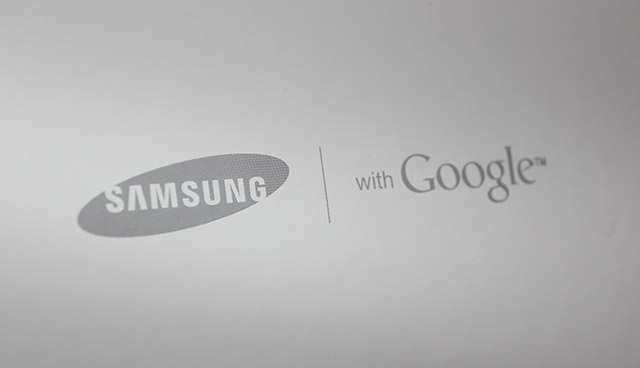
With the launch of the iPhone 5s on Wednesday morning, Apple sparked a new battlefront for smartphone manufacturers – 32-bit vs 64-bit CPUs – and Samsung is keen to follow their lead.
Speaking to the Korean Times, Samsung’s mobile business chief Shin Jong-kyun advised
Not in the shortest time. But yes, our next smartphones will have 64-bit processing functionality.
It’s not promising the next Galaxy device will run a 64-bit processor but it will come soon enough.
It’s really not that big a revelation, based on recent announcements from ARM regarding their upcoming ARMv8 architecture, which will see Cortex A-53 and A-57 SOC architecture licensed to companies such as Qualcomm and Nvidia, with Intel also surely hard at work on this next generation of SOCs.
With 64-bit CPUs pretty much the standard in desktop and laptop computers, the architecture would be the natural progresion for Smartphones as well. Whether we see the 64-bit CPUs in a Samsung manufactured Exynos or a Qualcomm manufactured Snapdragon is the next question.




This will eventually lead to the death of 32-bit browsers. Yaaayy!
The release of the new iPhone provoked a bit of a discussion on 64-bit processors with a friend of mine the other day. My understanding is that 64-bit processors only have an advantage when you have more than 4GB of RAM to address, as a 32-bit can only address up to 4GB. He argues that there is some advantage to a 64-bit processor even without that sort of RAM, e.g. the Nintendo 64 wouldn’t have anywhere near 4GB RAM and Nintendo saw fit to making it a 64-bit processor! However, if there is an advantage why haven’t chip companies done… Read more »
This is exactly what I wanted to know… I imagine the instruction sets work better or the data pipelines can be shrunk but I always assumed the benefit was primarily for RAM addressing
Firstly the N64 didn’t have a 64 bit CPU, it was the width of part of the graphics processor. Consider also MMX/SSE on your old Pentium 3 it had 128 bit vector processing. It was still a 32 bit CPU.
Programs are larger as they need to fit in 64 bit space rather than 32. The 4gb ram issue isn’t going to crop up in the mobile world for a few years. Basically though, 64 bit is the future and will be needed at some point down the track. There are some advantages to the instruction set (on-board encryption for example) as well, but basically just future proofing from the reading I’ve done on the subject.
we are already hitting 3gb ram in new phones/tabs so I reckon 4gb will be Xmas time.
I’ll give you some generalisations about 64-bit – some may apply: 1. “True 64-bit” usually means more memory is consumed, as individual instructions would be 8 bytes instead of 4 bytes. This applies mostly to RISC processors such as ARM – for x86 this was more complex. Of course ARM already has a mode where some 32-bit processors run 16-bit instructions (called Thumb mode) specifically to keep memory usage lower so there’s no reason to expect that ARM 64-bit processors _must_ use 64-bit instructions all the time. Of course not using 64-bit instructions means any benefits are limited. 2. As… Read more »